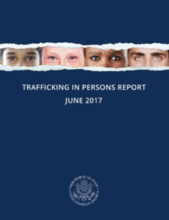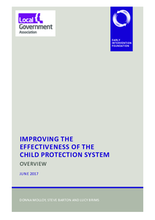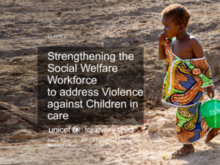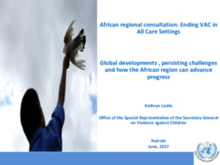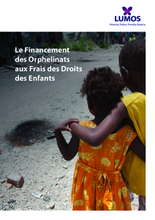Displaying 761 - 770 of 1343
The Trafficking in Persons Report is an annual publication of the U.S. Department of State, providing a snapshot of human trafficking around the world with attention to key issues, trends, standards, and updates.
The goal of this study is to analyze, from the adoptee's point of view, the experience of being adopted in the school context and the impact of the child's social competence, social disclosure of adoption and social reaction to the adoptive status.
The present study investigates the relationships among children's history of maltreatment, attachment patterns, and behavior problems in Japanese institutionalized children.
This overview report provides a summary of key findings and lessons from five detailed research papers investigating what has proven to improve outcomes for children in the child protection system, what programs and services are delivered locally in the child protection system, and what is known about the overall effectiveness of the child protection system.
This UNICEF presentation describes the need for social service workforce strengthening in East and Southern Africa and presents recommendations based on a case example from Rwanda.
The Sustainable Tourism Report: East Africa features numerous articles about sustainable and ethical tourism in East Africa, including a piece by Mark Riley and Charlotte Beau titled, "Why Including an Orphanage Trip on a Tour Itinerary is Wrong."
This presentation provides an overview of recent efforts and developments to end violence against children in all care settings around the world. Persisting global challenges and opportunities at the national, regional and global levels to end violence against children are also identified.
This study investigated the relationship between quality of child care and social-emotional development in 2- to 3-year old children in the Netherlands.
This article focuses on the assessment of the effects of early institutional care and compares three longitudinal studies from Romania, Greece and Hong Kong/China.
Pour comprendre la raison pour laquelle les orphelinats continuent de se développer en Haïti et la façon dont ils affectent les enfants, Lumos a mené une enquête sur les modes de financement et les ramifications de la vie en orphelinat sur les enfants élevés entre leurs murs.

